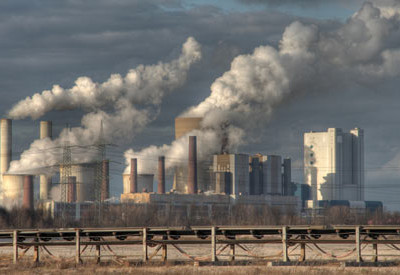News Flash: 10th Cir. Rebukes Government Over Coal Leases
Today’s important ruling on standing, public lands, and climate change
In an important ruling this morning, the Tenth Circuit rejected the government’s assertion that it could ignore carbon emissions tied to renewing coal leases. In WildEarth Guardians v. BLM, the court also rejected the mining company’s attack on the standing of environmental groups to raise this claim.The mines in question are in the Powder River Basin, which is the source of almost 40% of coal production. The mines involved in the case are massive, producing 230 million tons of coal a year, or 20% of annual production. So the case has not only legal but practical significance. The government’s environmental impact statement, however, claimed that the U.S. would use the same amount of coal regardless of whether the leases were renewed, so the renewal would have no effect on carbon emissions or climate change.
The court began by rejecting the mining companies’ standing challenge. According to the court, “it is not the case that Plaintiffs’ injury must be tied to the particular deficiency alleged in the FEIS [Final Environmental Impact Statement], i.e., that Plaintiffs must allege a climate-change related injury in order to have standing to challenge BLM’s analysis of climate change impacts.” Thus, it was enough that the mines would cause other environmental impacts on the plaintiffs, and that a court’s remedy in the case would also indirect those other impacts. This position was previously taken by the D.C. Circuit, so this part of the decision is not pathbreaking. Nevertheless, it provides important support to a principle that should greatly assist plaintiffs in establishing standing. Showing standing based on climate impacts is more difficult because climate harms involve complex chains of causation, and it is hard to show that any particular carbon source will have a measurable effect on the plaintiffs. But these courts seem right that plaintiffs have other, easier ways of establishing standing, which they can then use to raise climate-related issues.
The court then turned to the merits. It had no problem rejecting as economically irrational the premise that eliminating an important part of the supply of coal would have no effect on consumption. There was no evidence in the record to support this questionable premise. The agency had cited to portions of a report by the Energy Information Agency, but other portions of the report made it clear that coal demand is sensitive to price, and it is basic economics that reducing supply increases price. And in other parts of its decision, the agency “repeatedly noted that PRB [Powder River Basin] coal enjoys several cost advantages over coal from other regions.”
Significantly, the court also rejected any special to the agency based on the nature of the issues in the case:
“We do not owe the BLM any greater deference on the question at issue here because it does not involve “the frontiers of science.” The BLM acknowledged that climate change is a scientifically verified reality. Climate science may be better in 2017 than in 2010 when the FEIS became available, but it is not a scientific frontier as defined by the Supreme Court in Baltimore Gas, i.e., as barely emergent knowledge and technology.”
Given that a concurring judge had questioned the court’s choice to describe climate science as settled, this language about the frontiers of science clearly was considered.
Given Trump’s desire to eliminate climate change as a factor in energy policy, this decision is clearly bad news for the Administration. Correspondingly, it is good news for anyone who doesn’t share the President’s desire to pour as much carbon into the atmosphere as possible.
Reader Comments
3 Replies to “News Flash: 10th Cir. Rebukes Government Over Coal Leases”
Comments are closed.








The name of the case or a link or a pdf of the opinion would be very helpful.
Sorry about the oversight. I’ve added those now.
“…..it is hard to show that any particular carbon source will have a measurable effect on the plaintiffs…..”
It is also hard to show that 400 ppm atmospheric carbon dioxide level will have a measurable effect on the plaintiffs and that’s what matters most. No one knows with absolute legal certainty the actual and complete physical role of carbon dioxide within the complex dynamics of global climate.
CO2 is a trace gas that appears to only play an insignificant and minute role when compared to other dominant factors like solar radiation, water vapor, etc. There is no need to worry about CO2 and nothing can be done to effectively control atmospheric levels of carbon dioxide.
Living in Houston after Hurricane Harvey, I can attest that one of the most effective methods to mitigate so-called “climate change” is procuring Flood Insurance which is substantive, valuable and a good strategy for adaptation. Flood Insurance is credible and not some ripoff scam like those fraudulent carbon credits sold in California purportedly to lower sea level.